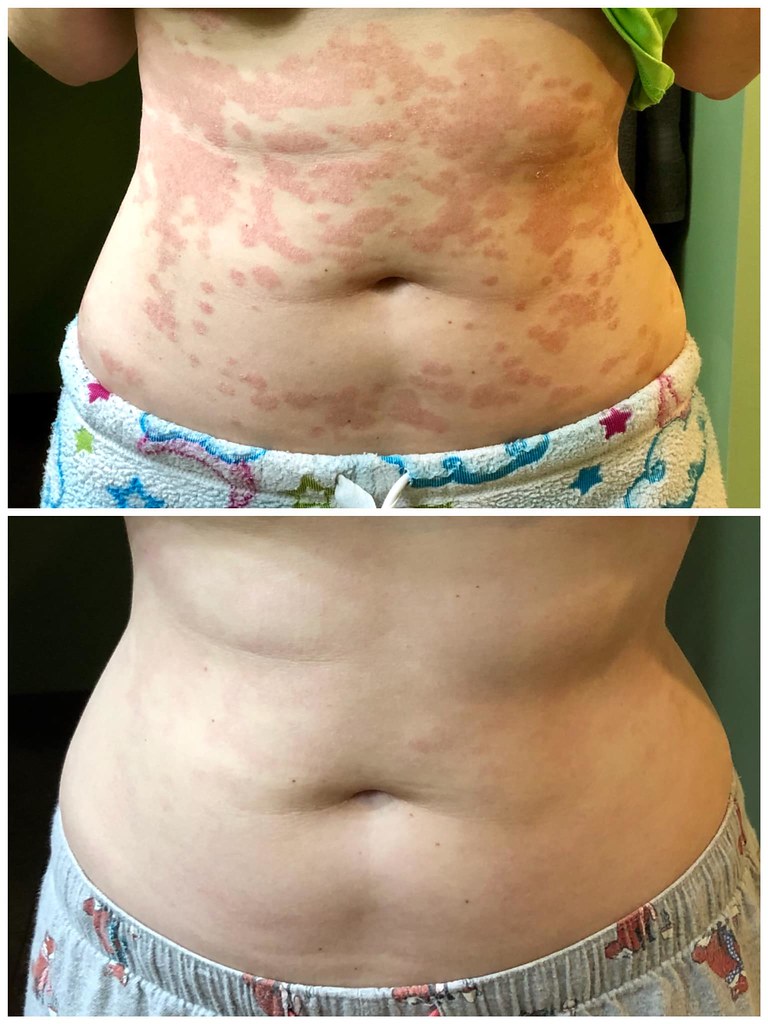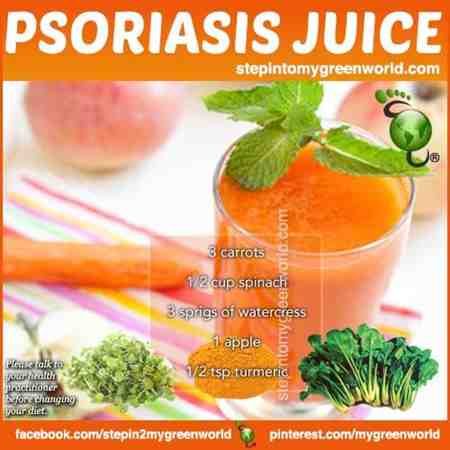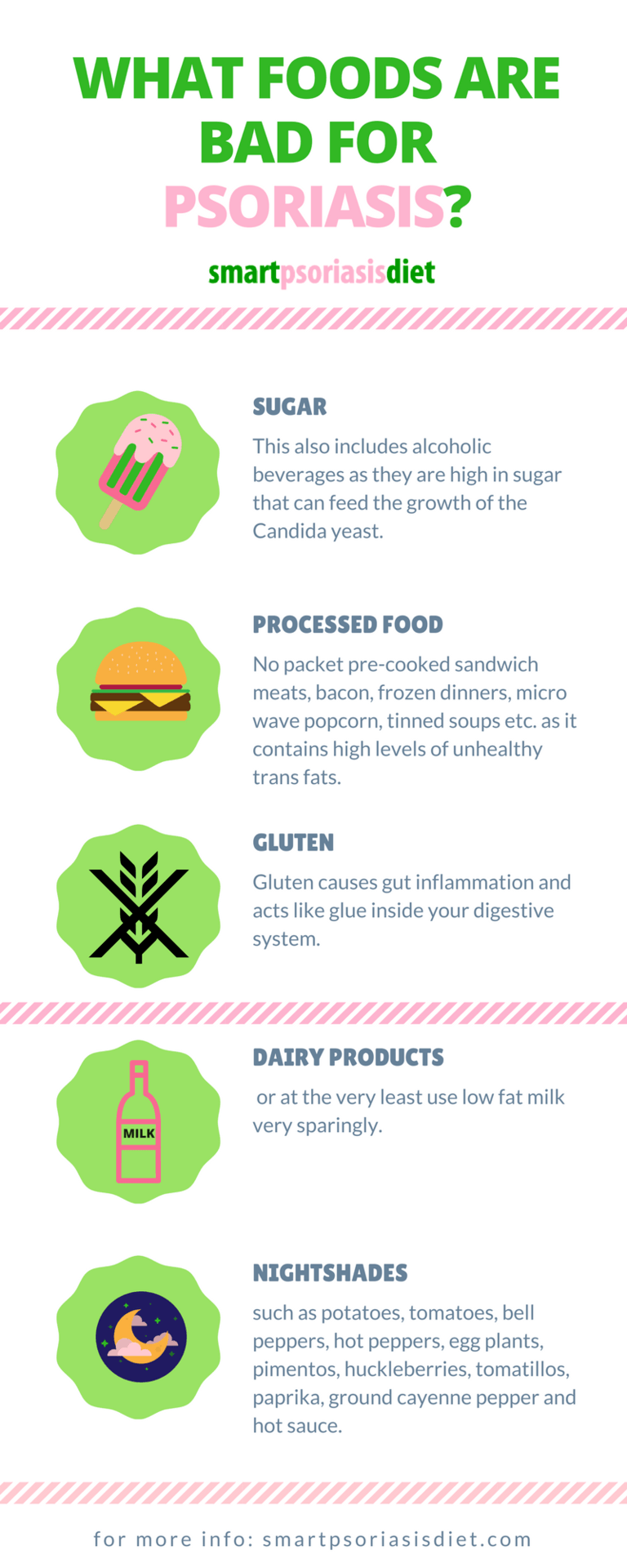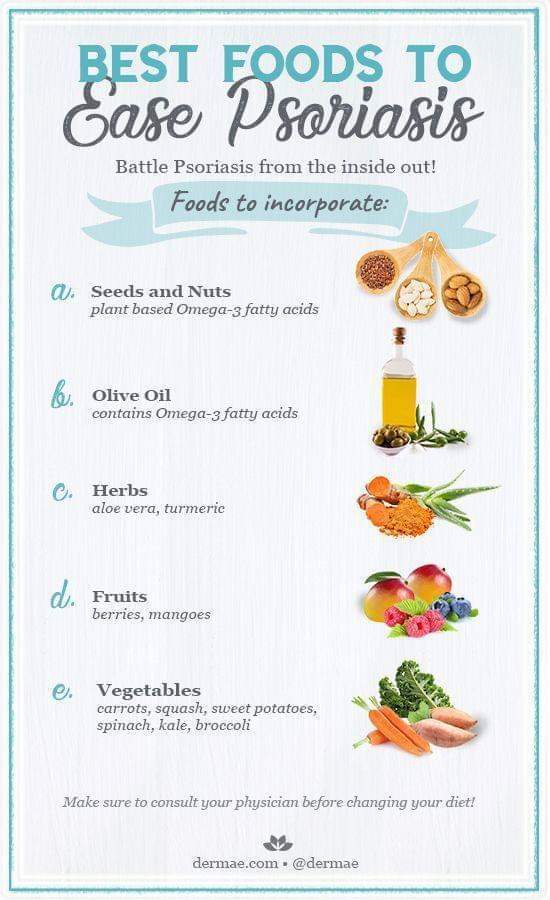

A psoriasis diet is a strict regimen of avoiding sugar, most baked goods, and other sweet foods. Most psoriasis sufferers also avoid coffee and alcohol, which can worsen the condition. A psoriasis diet should also limit the amount of processed foods. To achieve a healthy weight, a gluten-free diet is recommended. Some people with atopic dermatitis say that a gluten-free diet helps control the symptoms.
Many people with psoriasis believe that eating fatty fish and vegetables is beneficial to their condition. Omega-3 fatty acids may also reduce the risk of heart disease and stroke. Lean meat is a staple in a dietary plan for people with psoriasis, and lean poultry is a great source of protein. Eggs should also be limited as they are nightshades, which can aggravate the condition.
Despite a low-fat diet, it can help to eat fish that contain omega-3 fatty acids. These fats have anti-inflammatory properties and may help to control the progression of psoriasis. In addition to fish, other sources of fatty acids include nuts, seeds, and avocados. These healthy foods are essential for a psoriasis diet. They can also reduce the risk of cardiovascular disease.
In addition to vegetables, fruits contain anti-inflammatory properties. To cut down on the inflammation caused by psoriasis, consume plenty of fruit and vegetable. Especially in the case of citrus, mango and melons contain Vitamin A, and broccoli has anti-inflammatory properties. So, if you want to enjoy a sweet treat, a psoriasis diet is the perfect solution.
A psoriasis diet should consist of fresh fruit and vegetables. These foods contain high amounts of antioxidants, which are essential for reducing inflammation. Choosing a psoriasis diet that has lots of fresh fruits and vegetables is essential for a person with psoriasis. A vegan diet should be the mainstay of your diet. The latter can be combined with a vegetarian diet.
A psoriasis diet should include lean cuts of meat and poultry, which can reduce inflammation and the risk of heart disease. A psoriasis diet must also include a variety of healthy vegetable oils, which should be diluted or completely eliminated. Adding eggs to a dietary plan can be dangerous for a pregnant woman, so it is recommended to talk to your healthcare provider before introducing any new food into your diet.


In addition to a diet based on fruits and vegetables, a psoriasis diet should include foods that reduce inflammation. The diet for psoriasis should also include plenty of fresh vegetables. Add turmeric to teas or soups to boost your immune system. Ginger is an excellent anti-inflammatory agent and stimulates digestion. Other inflammatory foods include sardines and broccoli.
The diet for psoriasis should also include lean cuts of meat. Choosing lean cuts of meat, poultry, and fish will help you eat less, and dietary changes will help you maintain a normal weight. In addition, a balanced diet and the use of a cream keraderm will not only improve the condition of the skin, but also prevent other diseases from affecting your health. It is important to note that the psoriasis diet should not be limited to a particular food group or one particular food.
The psoriasis diet should also be tailored to your specific needs. Depending on your preference, it may include a variety of fruits and vegetables, lean meats, and healthy vegetable oils. In addition to this, you should avoid potato chips, chocolate, and red meat. It is important to stay away from dairy products. Some studies have shown that eggs can increase the symptoms of psoriasis.
A psoriasis diet should include foods rich in omega-3 fatty acids, which can help relieve symptoms. It should also contain foods high in sugar and sodium, as these foods can make the condition worse. It’s also important to remember that a psoriasis diet is not a substitute for medical advice, so be sure to ask your doctor if it’s right for you.
The diet for psoriasis should be based on a balanced diet high in omega-3 fatty acids, vegetables, and whole grains. While most research has focused on individual nutrients and food groups, the benefits of a psoriasis-specific diet are still unclear. However, it’s important to avoid foods that increase inflammation, including dairy, refined sugar, and processed foods. In addition, certain types of fruits and vegetables, such as eggplant and white potatoes, should also be avoided in the diet.